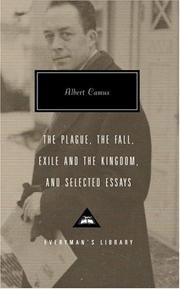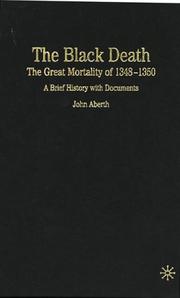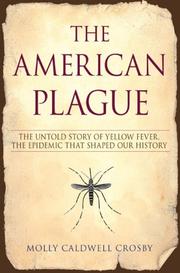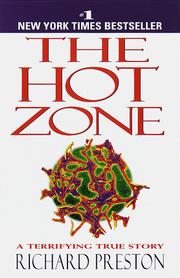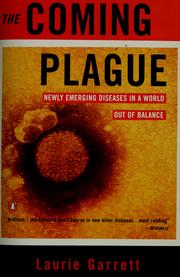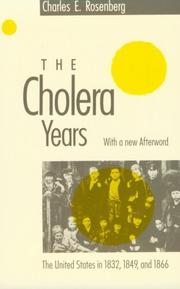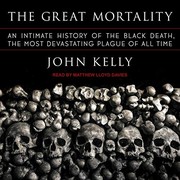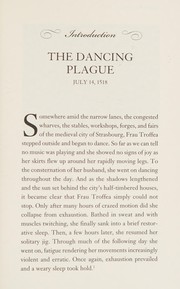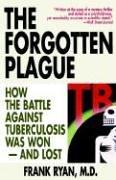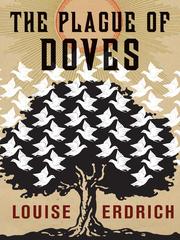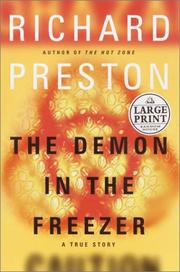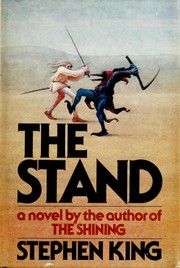Are you fascinated by the history of pandemics and the devastating impact of plagues on society? If so, you’ll love diving into these 20 best books about plagues. From historical accounts of the Black Death to modern-day examinations of global pandemics, these books offer gripping narratives, scientific insights, and thought-provoking analysis. Whether you’re a history buff, a science enthusiast, or simply curious about the human experience during times of crisis, there’s a book on plagues that’s sure to captivate you.
Contents
- 1 20 Best Books About Plagues
- 2 The Great Influenza: The Story of the Deadliest Pandemic in History
- 3 The Plague
- 4 Pale Rider: The Spanish Flu of 1918 and How It Changed the World
- 5 The Black Death: The Great Mortality of 1348-1350: A Brief History with Documents
- 6 The American Plague: The Untold Story of Yellow Fever, the Epidemic That Shaped Our History
- 7 The Hot Zone: A Terrifying True Story
- 8 The Coming Plague: Newly Emerging Diseases in a World Out of Balance
- 9 The Pandemic Century: One Hundred Years of Panic, Hysteria, and Hubris
- 10 The Cholera Years: The United States in 1832, 1849, and 1866
- 11 The Fever: How Malaria Has Ruled Humankind for 500,000 Years
- 12 The Great Mortality: An Intimate History of the Black Death, the Most Devastating Plague of All Time
- 13 The End of Epidemics: The Looming Threat to Humanity and How to Stop It
- 14 The Malaria Capers: Tales of Parasites and People
- 15 The Dancing Plague: The Strange, True Story of an Extraordinary Illness
- 16 The Forgotten Plague: How the Battle Against Tuberculosis Was Won—and Lost
- 17 The Plague of Doves
- 18 The Black Death: Natural and Human Disaster in Medieval Europe
- 19 The Demon in the Freezer: A True Story
- 20 The Stand
- 21 Station Eleven
- 22 Conclusion
- 23
- 24 Books on Mumbai: Discover the Top 20 in our 2024 Updated List
- 25 Top 20 Best Books on Apartheid In South Africa:2024 Edition
- 26 Discover Best Bacteria Books: 20 Key Titles, 2024 Updated
20 Best Books About Plagues
The Great Influenza: The Story of the Deadliest Pandemic in History
by John M. Barry
The Great Influenza: The Story of the Deadliest Pandemic in History by John M. Barry is a compelling book about plagues that delves into the devastating 1918 influenza pandemic. Barry paints a vivid picture of the medical, social, and political landscapes of the time, exploring the scientific efforts to understand and combat the deadly virus. The book also offers a captivating insight into the lives of key figures in the battle against the pandemic, revealing their personal struggles and triumphs. Barry’s meticulous research and engaging storytelling make this plagues book a gripping and informative read, shedding light on the harrowing impact of the influenza outbreak and its lasting influence on public health and medicine. The Great Influenza is a must-read for anyone interested in history, science, and the human experience in the face of a global health crisis.
The Plague
by Albert Camus
The Plague, written by Albert Camus, is a compelling book about plagues that explores the human condition in the face of an epidemic. Set in the Algerian city of Oran, the novel follows the lives of the city’s inhabitants as they grapple with the sudden outbreak of a deadly disease. As the plague spreads, the characters must confront their own mortality, fear, and the fragility of human existence. Camus’ writing is thought-provoking and philosophical, delving into themes of isolation, despair, and the resilience of the human spirit. The novel is a powerful reflection on the nature of suffering and the ways in which individuals respond to adversity. The plagues book serves as a poignant reminder of the enduring impact of human suffering and the strength of the human spirit in the face of overwhelming challenges.
Pale Rider: The Spanish Flu of 1918 and How It Changed the World
by Laura Spinney
Pale Rider: The Spanish Flu of 1918 and How It Changed the World by Laura Spinney is a compelling book about plagues that delves into the devastating impact of the Spanish Flu pandemic. Spinney explores the global reach of the virus, its origins, and the social, political, and cultural consequences that followed in its wake. Through vivid storytelling and meticulous research, she brings to life the experiences of those who lived through the pandemic, and sheds light on how it reshaped the world in its aftermath. This plagues book is a gripping account of a little-known but hugely impactful event in history, offering valuable insights into the nature of pandemics and their far-reaching effects. Spinney’s masterful narrative makes Pale Rider a must-read for anyone interested in understanding the profound influence of infectious diseases on human societies.
The Black Death: The Great Mortality of 1348-1350: A Brief History with Documents
by John Aberth
The Black Death: The Great Mortality of 1348-1350: A Brief History with Documents by John Aberth is a compelling book on plagues that provides a vivid and detailed account of one of the most devastating pandemics in human history. Aberth delves into the origins, spread, and impact of the Black Death, offering readers a comprehensive understanding of this catastrophic event. Through a collection of primary sources and documents, the author brings to life the experiences of those who lived through the plague, providing valuable insights into the social, economic, and cultural effects of the disease. Aberth’s book about plagues is a captivating and informative read, shedding light on the profound and lasting effects of the Black Death on medieval society. It is a must-read for anyone interested in understanding the history and impact of plagues.
The American Plague: The Untold Story of Yellow Fever, the Epidemic That Shaped Our History
by Molly Caldwell Crosby
The American Plague: The Untold Story of Yellow Fever, the Epidemic That Shaped Our History by Molly Caldwell Crosby is a gripping book on plagues that delves into the devastating impact of yellow fever on American history. Crosby vividly recounts the terrifying outbreaks of the disease in the 18th and 19th centuries, highlighting the fear and panic that gripped communities as the epidemic spread. Through meticulous research and compelling storytelling, she explores the scientific, social, and political ramifications of the disease, shedding light on how it shaped the course of American history. This book about plagues offers a fascinating and harrowing look at one of the most impactful epidemics in American history, providing a deeper understanding of the profound influence of infectious diseases on society.
The Hot Zone: A Terrifying True Story
by Richard Preston
The Hot Zone: A Terrifying True Story by Richard Preston is a gripping non-fiction book about infectious diseases. This heart-stopping account delves into the world of deadly viruses and the terrifying impact they can have on humanity. The book delves into the terrifying world of lethal viruses and the potential for catastrophic outbreaks. It tells the real-life story of the Ebola virus and the individuals who risked their lives to contain it. Preston’s writing is so vivid and intense that it feels like a thriller, keeping readers on the edge of their seats as they learn about the dangers of these microscopic killers. This book on plagues is a must-read for anyone interested in the science behind infectious diseases and the courageous individuals who battle them.
The Coming Plague: Newly Emerging Diseases in a World Out of Balance
by Laurie Garrett
The Coming Plague: Newly Emerging Diseases in a World Out of Balance by Laurie Garrett is a groundbreaking book on plagues that explores the rise of newly emerging infectious diseases and their impact on a global scale. Garrett delves into the interconnected factors that contribute to the spread of these diseases, including environmental changes, globalization, and human behavior. Through in-depth research and compelling storytelling, the author paints a vivid picture of the threats posed by plagues such as Ebola, HIV/AIDS, and other emerging infections, shedding light on the challenges faced by public health authorities and the need for a coordinated international response. The Coming Plague is a timely and eye-opening book about plagues that offers valuable insights into the complex dynamics of infectious disease outbreaks and their implications for the future.
The Pandemic Century: One Hundred Years of Panic, Hysteria, and Hubris
by Mark Honigsbaum
The Pandemic Century by Mark Honigsbaum is a captivating book about plagues that delves into one hundred years of global pandemics, exploring the human response to outbreaks of infectious diseases. Honigsbaum’s narrative not only highlights the scientific and medical advancements in understanding and combating diseases, but also examines the societal, political, and cultural impacts of these global health crises. From the Spanish flu to the Ebola outbreak, the book offers a comprehensive overview of the pandemics that have shaped our modern world. Through gripping storytelling and meticulous research, Honigsbaum sheds light on the patterns of panic, hysteria, and hubris that have characterized our responses to pandemics throughout history. This plagues book is a thought-provoking exploration of the complex relationship between humans and infectious diseases, making it a must-read for anyone interested in the intersection of public health and society.
The Cholera Years: The United States in 1832, 1849, and 1866
by Charles E. Rosenberg
The Cholera Years by Charles E. Rosenberg is a captivating book about plagues that delves into the devastating cholera epidemics in the United States during the 19th century. Rosenberg provides a detailed account of the outbreaks in 1832, 1849, and 1866, highlighting the societal and medical responses to the disease. Through meticulous research and compelling storytelling, the author paints a vivid picture of the fear, confusion, and resilience of the American people as they faced these deadly plagues. The book offers a fascinating exploration of the intersection between public health, politics, and culture, shedding light on how these plagues shaped the nation’s understanding of disease and influenced public policy. With its insightful analysis and engaging narrative, The Cholera Years is a must-read for anyone interested in the history of plagues and their impact on society.
The Fever: How Malaria Has Ruled Humankind for 500,000 Years
by Sonia Shah
The Fever: How Malaria Has Ruled Humankind for 500,000 Years by Sonia Shah is a captivating exploration of the history and impact of malaria on human civilization. In this compelling book on plagues, Shah delves into the origins of the disease and its relentless spread across the globe, shaping societies and influencing human evolution for millennia. She skillfully weaves together scientific research, historical accounts, and personal narratives to paint a vivid picture of the devastating effects of malaria and the ongoing battle to control it. Shah’s engaging storytelling and thorough analysis make this book about plagues a must-read for anyone interested in the intersection of health, history, and human society.
The Great Mortality: An Intimate History of the Black Death, the Most Devastating Plague of All Time
by John Kelly
The Great Mortality: An Intimate History of the Black Death, the Most Devastating Plague of All Time by John Kelly is a gripping book on plagues that delves into the harrowing account of the Black Death. Kelly provides a deeply researched and vividly detailed book about plagues, chronicling the origins, spread, and impact of the plague that ravaged Europe in the 14th century. Through his compelling narrative, Kelly brings to life the experiences of individuals and communities who grappled with the unfathomable devastation wrought by the disease. This plagues book offers a poignant and chilling portrayal of the human toll of the Black Death, while also shedding light on the societal, economic, and cultural repercussions of the epidemic. The Great Mortality is a haunting and informative exploration of one of the most catastrophic events in history.
The End of Epidemics: The Looming Threat to Humanity and How to Stop It
by Jonathan D. Quick
The End of Epidemics: The Looming Threat to Humanity and How to Stop It by Jonathan D. Quick is a compelling book on plagues that delves into the urgent need for global collaboration in preventing and controlling infectious disease outbreaks. Quick, a public health expert, provides a comprehensive overview of past pandemics and outlines the potential risks of future epidemics. He emphasizes the importance of early detection, rapid response, and strong leadership in combating infectious diseases. The book offers practical solutions and strategies for individuals, communities, and governments to prevent the spread of deadly viruses and diseases. With its insightful analysis and actionable recommendations, this plagues book is a must-read for anyone concerned about global health security.
The Malaria Capers: Tales of Parasites and People
by Robert S. Desowitz
The Malaria Capers: Tales of Parasites and People by Robert S. Desowitz is a captivating book about plagues that delves into the fascinating and often overlooked world of parasites and their impact on human history. Desowitz takes readers on a journey through the history of malaria, exploring the ways in which this deadly disease has shaped human societies and cultures. With a blend of scientific insight and engaging storytelling, the author sheds light on the complex relationship between parasites and their human hosts, offering a unique perspective on the ongoing battle against plagues. Through vivid anecdotes and compelling research, The Malaria Capers provides a thought-provoking exploration of the intricate and often surprising connections between parasites and people.
The Dancing Plague: The Strange, True Story of an Extraordinary Illness
by John Waller
The Dancing Plague: The Strange, True Story of an Extraordinary Illness by John Waller is a fascinating book about plagues that delves into the mysterious and bizarre phenomenon of the dancing plague that swept through the town of Strasbourg in 1518. Waller explores the historical and medical context of this strange event, offering insights into the psychological, social, and cultural factors that may have contributed to the outbreak. Drawing on historical records and medical research, the book provides a captivating account of this extraordinary illness, shedding light on the complexities of human behavior and the enigmatic nature of mass hysteria. With its compelling narrative and thought-provoking analysis, The Dancing Plague offers a unique perspective on a little-known chapter in the history of plagues.
The Forgotten Plague: How the Battle Against Tuberculosis Was Won—and Lost
by Frank Ryan
The Forgotten Plague: How the Battle Against Tuberculosis Was Won—and Lost by Frank Ryan is a captivating book about plagues that delves into the history of tuberculosis, a disease that has plagued humanity for centuries. Ryan explores the triumphs and setbacks in the fight against this deadly illness, from the discovery of the tuberculosis bacillus to the development of antibiotics. Through vivid storytelling, he recounts the devastating impact of tuberculosis on individuals and society, and the tireless efforts of scientists and doctors to combat it. The book sheds light on the victories and failures in the war against tuberculosis, offering a compelling narrative that is both informative and thought-provoking. Readers will gain a deeper understanding of this persistent plagues book and the profound impact it has had on human history.
The Plague of Doves
by Louise Erdrich
The Plague of Doves by Louise Erdrich is a captivating novel that delves into the complexities of small-town life and the lasting effects of a violent past. Set in the Ojibwe reservation in North Dakota, the story unfolds with the discovery of a brutal murder that shakes the community to its core. As the town’s secrets and long-buried resentments come to light, the novel weaves together the interconnected lives of its diverse characters, each grappling with their own burdens and desires. Erdrich’s rich prose and vivid storytelling bring to life a haunting and evocative portrait of a community haunted by its history and the plague of doves that looms over them. This powerful and poignant book about plagues is a testament to the enduring impact of the past and the resilience of the human spirit.
The Black Death: Natural and Human Disaster in Medieval Europe
by Robert S. Gottfried
The Black Death: Natural and Human Disaster in Medieval Europe by Robert S. Gottfried is a compelling book about plagues that delves into the devastating impact of the infamous Black Death. Gottfried provides a comprehensive examination of the natural and human factors that contributed to the spread of the plague, offering a detailed account of its origins, transmission, and effects on medieval Europe. Through thorough research and analysis, the author paints a vivid picture of the social, economic, and cultural upheaval caused by this catastrophic event. With a combination of historical insight and scientific knowledge, Gottfried’s plagues book offers a captivating exploration of one of the most significant pandemics in human history, making it a must-read for anyone interested in understanding the profound impact of infectious diseases on society.
The Demon in the Freezer: A True Story
by Richard Preston
The Demon in the Freezer: A True Story by Richard Preston is a gripping and chilling account of the battle against smallpox, a deadly virus that has the potential to cause global devastation. This book delves into the history of the smallpox virus, its eradication, and the potential threat of its reappearance due to its storage in laboratories. Preston’s narrative is filled with fascinating details about the scientists and health workers who risked their lives to combat the virus, as well as the political and ethical dilemmas surrounding the virus’s containment and destruction. This book on plagues is a riveting exploration of the dangers posed by infectious diseases and the ongoing efforts to prevent global pandemics. The Demon in the Freezer is a must-read for anyone interested in the history and potential resurgence of deadly viruses.
The Stand
by Stephen King
The Stand by Stephen King is a gripping book about plagues that follows the story of a deadly virus that wipes out most of the world’s population, leaving the survivors to navigate a post-apocalyptic landscape. The novel delves into the struggle between good and evil as the survivors are drawn to either a benevolent elderly woman or a sinister figure who seeks to establish his own tyrannical rule. King’s masterful storytelling creates a sense of impending doom and draws readers into the lives of the diverse characters as they face the challenges of rebuilding society and battling the forces of darkness. With its vivid imagery and complex characters, The Stand is a timeless plagues book that explores the depths of human nature in the face of catastrophe.
Station Eleven
by Emily St. John Mandel
Station Eleven by Emily St. John Mandel is a captivating novel set in a post-apocalyptic world, where a deadly flu pandemic has wiped out most of the population. The story follows a group of interconnected characters, both before and after the outbreak, as they navigate a world devoid of technology, art, and civilization as they once knew it. Through its beautifully woven narrative, the novel explores the resilience of the human spirit, the power of art and the enduring connections that bind us together. This thought-provoking book on plagues is a hauntingly beautiful tale of survival, hope, and the indomitable nature of the human soul.
Conclusion
In conclusion, these 20 best books about Plagues offer a chilling and thought-provoking exploration of the impact of pandemics on society. From historical accounts to fictional tales, these books provide valuable insight into the human experience during times of crisis. Whether you’re a history buff, a fan of dystopian fiction, or simply looking to better understand the current global situation, these books offer a compelling and illuminating read.
Which Plagues book is best?
The best book on Plagues can vary with personal preference, but three widely recommended titles are:
- The Great Influenza: The Story of the Deadliest Pandemic in History by John M. Barry,
- The Plague by Albert Camus,
- Pale Rider: The Spanish Flu of 1918 and How It Changed the World by Laura Spinney.
Each offers valuable insights and could be a great starting point.
What are the best books to learn about Plagues?
For those looking to learn about Plagues, there is a wealth of literature that can provide a comprehensive understanding of the subject. Some of the most highly recommended books include:
- The Great Influenza: The Story of the Deadliest Pandemic in History by John M. Barry,
- The Plague by Albert Camus,
- Pale Rider: The Spanish Flu of 1918 and How It Changed the World by Laura Spinney,
- The Black Death: The Great Mortality of 1348-1350: A Brief History with Documents by John Aberth,
- The American Plague: The Untold Story of Yellow Fever, the Epidemic That Shaped Our History by Molly Caldwell Crosby,
- The Hot Zone: A Terrifying True Story by Richard Preston,
- The Coming Plague: Newly Emerging Diseases in a World Out of Balance by Laurie Garrett,
- The Pandemic Century: One Hundred Years of Panic, Hysteria, and Hubris by Mark Honigsbaum,
- The Cholera Years: The United States in 1832, 1849, and 1866 by Charles E. Rosenberg,
- The Fever: How Malaria Has Ruled Humankind for 500,000 Years by Sonia Shah
These books offer a range of perspectives on Plagues, covering various aspects and approaches to the subject.
What are the best books on Plagues?
The best books on Plagues include:
- The Great Influenza: The Story of the Deadliest Pandemic in History by John M. Barry,
- The Plague by Albert Camus,
- The Great Mortality: An Intimate History of the Black Death, the Most Devastating Plague of All Time by John Kelly,
- The End of Epidemics: The Looming Threat to Humanity and How to Stop It by Jonathan D. Quick,
- The Pandemic Century: One Hundred Years of Panic, Hysteria, and Hubris by Mark Honigsbaum,
- The Hot Zone: A Terrifying True Story by Richard Preston.
Each offers unique insights into the subject. While these books on the topic of Plagues are highly regarded, it’s important to note that any list of ‘best’ books is subjective and reflects a range of opinions.
What are the best Plagues books of all time?
Choosing the best Plagues books of all time can vary depending on who you ask, but seven titles that are often celebrated include
- The Great Influenza: The Story of the Deadliest Pandemic in History by John M. Barry,
- The Plague by Albert Camus,
- The American Plague: The Untold Story of Yellow Fever, the Epidemic That Shaped Our History by Molly Caldwell Crosby,
- The Pandemic Century: One Hundred Years of Panic, Hysteria, and Hubris by Mark Honigsbaum,
- The Fever: How Malaria Has Ruled Humankind for 500,000 Years by Sonia Shah,
- The End of Epidemics: The Looming Threat to Humanity and How to Stop It by Jonathan D. Quick,
- and The Great Mortality: An Intimate History of the Black Death, the Most Devastating Plague of All Time by John Kelly.
Each of these books has made a significant impact in the field of Plagues and continues to be influential today.


